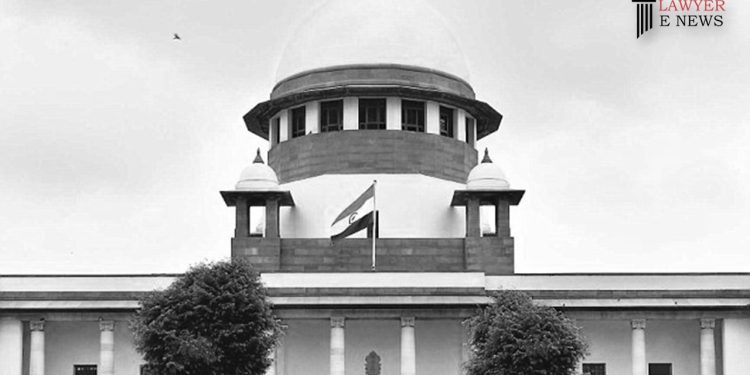Supreme Court Rejects High Court’s Interpretation, Applies Section 45 of PMLA to Anticipatory Bail Proceedings

In a significant ruling, the Supreme Court of India has set aside the order of the High Court of Telangana granting anticipatory bail to M. Gopal Reddy in connection with a money laundering case. The apex court held that the provisions of Section 45 of the Prevention of Money Laundering Act, 2002 (PMLA) are indeed applicable to anticipatory bail proceedings under Section 438 of the Criminal Procedure Code (Cr.PC), rejecting the High Court’s interpretation. The judgment emphasizes the need for careful consideration of the seriousness of the alleged offences, particularly in economic offences with far-reaching societal impact.
The High Court’s order granting anticipatory bail to M. Gopal Reddy, a former Additional Chief Secretary, had been based on the understanding that Section 45 of the PMLA did not apply to anticipatory bail proceedings, citing the previous Supreme Court decision in Nikesh Tarachand Shah v. Union of India and Anr. However, the Supreme Court clarified that the wrong reading of the Nikesh Tarachand Shah case led to this erroneous interpretation. Justice M.R. Shah, in delivering the judgment, stated, “The rigour of Section 45 of the PMLA is applicable to anticipatory bail proceedings, even in cases involving offences under the PMLA. The High Court erred in not applying the provisions of Section 45 to respondent No. 1’s anticipatory bail application.”
Furthermore, the Supreme Court emphasized the need for a careful assessment of the seriousness of the alleged money laundering offences while considering anticipatory bail. The Court observed that the High Court failed to adequately consider the gravity of the allegations against respondent No. 1, who was implicated in an e-tender scam involving collusion with infrastructure companies and government officials. The judgment emphasized that economic offences have a significant impact on society, and therefore, courts must exercise caution in granting anticipatory bail in such cases.
The Supreme Court also addressed the argument that the acquittal or discharge of co-accused individuals should preclude the continuation of the investigation against respondent No. 1. The Court clarified that the investigation could continue even if other accused parties have been acquitted or discharged. It emphasized that respondent No. 1’s apprehension of arrest and the ongoing investigation provided sufficient grounds to consider the grant of anticipatory bail.
In light of the ruling, the anticipatory bail granted to respondent No. 1 was set aside, and the case will be dealt with in accordance with the law. The Court stated that if respondent No. 1 is arrested, any subsequent regular bail application will be considered based on its merits and the material collected during the investigation.
This judgment highlights the Supreme Court’s commitment to addressing economic offences and the importance of thoroughly examining the seriousness of allegations in such cases. By affirming the applicability of Section 45 of the PMLA to anticipatory bail proceedings, the Court has reinforced the need for stringent scrutiny in matters of money laundering and its societal impact.
Date of Decision: February 24, 2022
The Directorate of Enforcement vs Gopal Reddy & Anr.
- Lawyer E- News Android Mobile App
- Latest Legal News[web_stories title=”false” excerpt=”false” author=”false” date=”false” archive_link=”true” archive_link_label=”” circle_size=”150″ sharp_corners=”false” image_alignment=”left” number_of_columns=”1″ number_of_stories=”5″ order=”DESC” orderby=”post_title” view=”circles” /]






